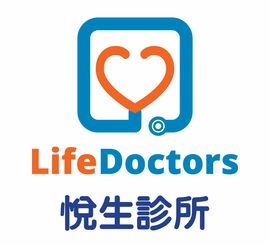Central Auckland > GPs / Accident & Urgent Medical Care > The Cause Collective >
Life Doctors
General Practice (GP) Service
Today
9:00 AM to 4:30 PM.
Description
We are a general practice aiming to provide quality healthcare to you and your family.
Consultations are by appointment only
We are also part of the Australia Immigration & New Zealand Immigration Medical Panel Physician Network.
Doctors
-

Dr Eddy Cheng
General Practitioner - Vocationally Registered
-

Dr Qiuyu Jin
General Practitioner
-

Dr Kee Lim
General Practitioner - Vocationally Registered
-

Dr Sharon Ngo
General Practitioner
How do I access this service?
Enrolled patients, Casual (not enrolled) patients, Make an appointment
Enrolling new patients
Fees
Enrolled patient fees
| Age Range | Without CSC | With CSC |
|---|---|---|
| Under 6 years | Free | Free |
| 6 to 13 years | Free | Free |
| 14 to 17 years | $55.00 | $13.50 |
| 18 to 24 years | $65.00 | $20.00 |
| 25 to 44 years | $65.00 | $20.00 |
| 45 to 64 years | $65.00 | $20.00 |
| 65+ years | $55.00 | $20.00 |
Hours
9:00 AM to 4:30 PM.
| Mon – Fri | 9:00 AM – 4:30 PM |
|---|
We are closed on Sundays and public holidays.
Preferred urgent care clinic out of hours:
Three Kings Accident & Medical
Three Kings Plaza, 536 Mount Albert Road, Three Kings, Auckland
Opening hours : 8:00 am to 8:00pm
Tel : 09 - 6252999
Public Holidays: Closed Waitangi Day (6 Feb), Good Friday (3 Apr), Easter Sunday (5 Apr), Easter Monday (6 Apr), ANZAC Day (observed) (27 Apr), King's Birthday (1 Jun), Matariki (10 Jul), Labour Day (26 Oct), Auckland Anniversary (1 Feb).
Preferred urgent care clinic out of hours: Three Kings Accident & Medical.
Languages Spoken
English, Mandarin Chinese, Cantonese Chinese
Services Provided
Immunisation is the safest and most effective way to provide protection for you and your tamariki’s health. For more information view the NZ immunisation schedule.
Immunisation is the safest and most effective way to provide protection for you and your tamariki’s health. For more information view the NZ immunisation schedule.
- Pregnancy vaccinations
- Childhood immunisation programme
- 45 year old vaccinations
- 65 year old vaccinations
- Adult flu vaccine
- Child flu vaccine
- Diphtheria / Tetanus / Pertussis (whooping cough) vaccine
- Human Papillomavirus (HPV) vaccine
- Measles / Mumps / Rubella (MMR) vaccine
- Meningococcal vaccine
- Shingles vaccine
- Travel vaccinations
- Catch-up missed vaccinations
- COVID-19 vaccination and boosters
Immunisation is the safest and most effective way to provide protection for you and your tamariki’s health. For more information view the NZ immunisation schedule.
Your GP's surgery is far more than a place to go when you are feeling unwell and needing a quick cure. The doctor who sees you has gone through an extensive medical training to equip her or him to help children and adults of all ages with a range of physical and emotional difficulties. GPs are at the centre of the healthcare hub and will be aware of services and expertise that are available locally and further-a-field. GPs are also aware of the link that stress and unhappy life events have on physical health so know when to suggest a talking therapy rather than medication.
Your GP's surgery is far more than a place to go when you are feeling unwell and needing a quick cure. The doctor who sees you has gone through an extensive medical training to equip her or him to help children and adults of all ages with a range of physical and emotional difficulties. GPs are at the centre of the healthcare hub and will be aware of services and expertise that are available locally and further-a-field. GPs are also aware of the link that stress and unhappy life events have on physical health so know when to suggest a talking therapy rather than medication.
Your GP's surgery is far more than a place to go when you are feeling unwell and needing a quick cure. The doctor who sees you has gone through an extensive medical training to equip her or him to help children and adults of all ages with a range of physical and emotional difficulties. GPs are at the centre of the healthcare hub and will be aware of services and expertise that are available locally and further-a-field. GPs are also aware of the link that stress and unhappy life events have on physical health so know when to suggest a talking therapy rather than medication.
All women and people with a cervix aged 25 – 69 who have ever had intimate skin-to-skin contact or been sexually active should have regular cervical screening. This includes women who have been immunised against HPV. Together, regular screening and HPV immunisation provide the best protection against cervical cancer. There are now more options for how you have cervical screening done: a simple vaginal swab test for HPV, either done yourself or with help from a healthcare professional a cervical sample taken by a healthcare professional (used to be known as a smear test). Talk with your healthcare provider to decide which option is best for you. If HPV is found, you may need to have a follow-up test or be referred directly for colposcopy. If you’ve not yet had HPV testing, you should be screened 3 years after your last test (or 1 year if immune deficient). Once you have had an HPV test, and providing HPV is not found, your next screening will be in 5 years (or 3 years if immune deficient). For more information: Cervical screening | Time to Screen - National Screening Unit
All women and people with a cervix aged 25 – 69 who have ever had intimate skin-to-skin contact or been sexually active should have regular cervical screening. This includes women who have been immunised against HPV. Together, regular screening and HPV immunisation provide the best protection against cervical cancer. There are now more options for how you have cervical screening done: a simple vaginal swab test for HPV, either done yourself or with help from a healthcare professional a cervical sample taken by a healthcare professional (used to be known as a smear test). Talk with your healthcare provider to decide which option is best for you. If HPV is found, you may need to have a follow-up test or be referred directly for colposcopy. If you’ve not yet had HPV testing, you should be screened 3 years after your last test (or 1 year if immune deficient). Once you have had an HPV test, and providing HPV is not found, your next screening will be in 5 years (or 3 years if immune deficient). For more information: Cervical screening | Time to Screen - National Screening Unit
All women and people with a cervix aged 25 – 69 who have ever had intimate skin-to-skin contact or been sexually active should have regular cervical screening. This includes women who have been immunised against HPV. Together, regular screening and HPV immunisation provide the best protection against cervical cancer.
There are now more options for how you have cervical screening done:
- a simple vaginal swab test for HPV, either done yourself or with help from a healthcare professional
- a cervical sample taken by a healthcare professional (used to be known as a smear test).
Talk with your healthcare provider to decide which option is best for you.
If HPV is found, you may need to have a follow-up test or be referred directly for colposcopy.
If you’ve not yet had HPV testing, you should be screened 3 years after your last test (or 1 year if immune deficient). Once you have had an HPV test, and providing HPV is not found, your next screening will be in 5 years (or 3 years if immune deficient).
For more information: Cervical screening | Time to Screen - National Screening Unit
An ECG is a recording of your heart's electrical activity. Electrode patches are attached to your skin to measure the electrical impulses given off by your heart. The result is a trace that can be read by a doctor. It can give information of previous heart attacks or problems with the heart rhythm.
An ECG is a recording of your heart's electrical activity. Electrode patches are attached to your skin to measure the electrical impulses given off by your heart. The result is a trace that can be read by a doctor. It can give information of previous heart attacks or problems with the heart rhythm.
An ECG is a recording of your heart's electrical activity. Electrode patches are attached to your skin to measure the electrical impulses given off by your heart. The result is a trace that can be read by a doctor. It can give information of previous heart attacks or problems with the heart rhythm.
Health screening tests check for health conditions or early warning signs of disease.
Health screening tests check for health conditions or early warning signs of disease.
- Cervical screening
Health screening tests check for health conditions or early warning signs of disease.
Sometimes your doctor needs to take a sample of blood or urine either to discover what is wrong with you or to measure something in your blood so that the right medication is given to you. These tests could be anything from blood sugar to a full blood count or a sample of tissue to test for cancer. While urine can generally be tested in the surgery, blood and other specimens are usually sent away for testing at a laboratory. Most results come back within 48 hours unless a very rare test is needed which has to go to a specialist lab further away when it might take a little longer.
Sometimes your doctor needs to take a sample of blood or urine either to discover what is wrong with you or to measure something in your blood so that the right medication is given to you. These tests could be anything from blood sugar to a full blood count or a sample of tissue to test for cancer. While urine can generally be tested in the surgery, blood and other specimens are usually sent away for testing at a laboratory. Most results come back within 48 hours unless a very rare test is needed which has to go to a specialist lab further away when it might take a little longer.
Sometimes your doctor needs to take a sample of blood or urine either to discover what is wrong with you or to measure something in your blood so that the right medication is given to you. These tests could be anything from blood sugar to a full blood count or a sample of tissue to test for cancer.
While urine can generally be tested in the surgery, blood and other specimens are usually sent away for testing at a laboratory. Most results come back within 48 hours unless a very rare test is needed which has to go to a specialist lab further away when it might take a little longer.
Primary care practices offer a range of services and are able to deal with most minor accident care. If they are not able to deal with an injury they will refer on to the appropriate service.
Primary care practices offer a range of services and are able to deal with most minor accident care. If they are not able to deal with an injury they will refer on to the appropriate service.
Primary care practices offer a range of services and are able to deal with most minor accident care. If they are not able to deal with an injury they will refer on to the appropriate service.
Minor surgery is commonly provided in primary care practices, providing fast, competent removal and biopsies of skin lesions. Other services include cosmetic work such as removal of benign moles and skin tags. Ingrown toenail surgery is also commonly provided. These conditions do not need to be referred to a hospital, perhaps saving you a long wait or a cancelled appointment when a more serious case takes priority.
Minor surgery is commonly provided in primary care practices, providing fast, competent removal and biopsies of skin lesions. Other services include cosmetic work such as removal of benign moles and skin tags. Ingrown toenail surgery is also commonly provided. These conditions do not need to be referred to a hospital, perhaps saving you a long wait or a cancelled appointment when a more serious case takes priority.
Minor surgery is commonly provided in primary care practices, providing fast, competent removal and biopsies of skin lesions. Other services include cosmetic work such as removal of benign moles and skin tags. Ingrown toenail surgery is also commonly provided.
These conditions do not need to be referred to a hospital, perhaps saving you a long wait or a cancelled appointment when a more serious case takes priority.
Each GP surgery or primary care practice will have its own procedure for repeat prescribing but the following rules are common to most, if not all. Patients who are well-known to the practice who have a stable condition like asthma, hypertension or diabetes could be allowed to get a repeat prescription for up to six months. Repeat prescriptions are never given to patients who are not known to the practice and there is probably a blanket ban on repeats for narcotics and other drugs that could be misused as doctors are expected to monitor these drugs carefully.
Each GP surgery or primary care practice will have its own procedure for repeat prescribing but the following rules are common to most, if not all. Patients who are well-known to the practice who have a stable condition like asthma, hypertension or diabetes could be allowed to get a repeat prescription for up to six months. Repeat prescriptions are never given to patients who are not known to the practice and there is probably a blanket ban on repeats for narcotics and other drugs that could be misused as doctors are expected to monitor these drugs carefully.
Each GP surgery or primary care practice will have its own procedure for repeat prescribing but the following rules are common to most, if not all. Patients who are well-known to the practice who have a stable condition like asthma, hypertension or diabetes could be allowed to get a repeat prescription for up to six months. Repeat prescriptions are never given to patients who are not known to the practice and there is probably a blanket ban on repeats for narcotics and other drugs that could be misused as doctors are expected to monitor these drugs carefully.
A virtual consultation is a way of having an appointment with your healthcare provider, but not in person. This is usually done via a video app or a phone call. For more detailed information about telehealth consultations, please see the guide from Healthify.
A virtual consultation is a way of having an appointment with your healthcare provider, but not in person. This is usually done via a video app or a phone call. For more detailed information about telehealth consultations, please see the guide from Healthify.
A virtual consultation is a way of having an appointment with your healthcare provider, but not in person. This is usually done via a video app or a phone call. For more detailed information about telehealth consultations, please see the guide from Healthify.
Another service offered to you at your GP surgery (primary care practice) is advice and immunisation before you go to another country. While you are likely to have the immunisations needed to live in New Zealand, there may be other injections you need to protect yourself before going for example to Africa or South America. In some places you will need protection from rabies or malaria. Yellow fever vaccinations are only available at approved centres; please click here to view the centres in New Zealand. Your doctor will be able to tell you what diseases you will need to be protected from in any named country and advise you on other medical matters.
Another service offered to you at your GP surgery (primary care practice) is advice and immunisation before you go to another country. While you are likely to have the immunisations needed to live in New Zealand, there may be other injections you need to protect yourself before going for example to Africa or South America. In some places you will need protection from rabies or malaria. Yellow fever vaccinations are only available at approved centres; please click here to view the centres in New Zealand. Your doctor will be able to tell you what diseases you will need to be protected from in any named country and advise you on other medical matters.
Another service offered to you at your GP surgery (primary care practice) is advice and immunisation before you go to another country. While you are likely to have the immunisations needed to live in New Zealand, there may be other injections you need to protect yourself before going for example to Africa or South America. In some places you will need protection from rabies or malaria. Yellow fever vaccinations are only available at approved centres; please click here to view the centres in New Zealand. Your doctor will be able to tell you what diseases you will need to be protected from in any named country and advise you on other medical matters.
Liquid nitrogen is a fast, effective treatment provided in many practices to treat viral warts, sun damaged skin, skin tags and many benign cosmetic lesions. It comes in a container with a nozzle and is usually applied by swab or spray. Often one treatment is all that is needed but sometimes it may need repeating after two weeks. Because it cannot be stored for too long, you will often find that your GP will treat a number of patients one after the other. For more information click here.
Liquid nitrogen is a fast, effective treatment provided in many practices to treat viral warts, sun damaged skin, skin tags and many benign cosmetic lesions. It comes in a container with a nozzle and is usually applied by swab or spray. Often one treatment is all that is needed but sometimes it may need repeating after two weeks. Because it cannot be stored for too long, you will often find that your GP will treat a number of patients one after the other. For more information click here.
Liquid nitrogen is a fast, effective treatment provided in many practices to treat viral warts, sun damaged skin, skin tags and many benign cosmetic lesions. It comes in a container with a nozzle and is usually applied by swab or spray. Often one treatment is all that is needed but sometimes it may need repeating after two weeks.
Because it cannot be stored for too long, you will often find that your GP will treat a number of patients one after the other.
For more information click here.
Applicants for New Zealand visas may be required to provide medical and chest x-ray certificates to demonstrate an acceptable standard of health. Immigration New Zealand uses eMedical, an online platform for processing immigration health examinations. The examining doctor records the applicant’s health examination results in eMedical then electronically submits them to Immigration New Zealand where they are associated with the applicant’s visa application once it is submitted. Only doctors who have been approved by Immigration NZ are able to conduct the medical examinations. The immigration officer who assesses the applicant’s visa application will determine whether they have an acceptable standard of health. Visa applicants requiring an immigration medical examination must make an appointment with an eMedical enabled clinic on Immigration New Zealand’s approved list. Australian Medical Examination Life Doctors is one of the Australian immigration panel doctors in Auckland. Our team can speak English, Mandarin and Cantonese. The results will file to immigration via eMedical system. Normally the case will submit to Australian Immigration in 5-7 working days.(Except with TB-IGRA blood test) We offer Urgent submission service. New Zealand Immigration Medical Exam Life Doctors is one of the New Zealand immigration panel doctors in Auckland. Our team can speak English, Mandarin and Cantonese. The results will file to immigration via eMedical system. Normally the case will submit to New Zealand Immigration in 5-7 working days We offer Urgent submission service.
Applicants for New Zealand visas may be required to provide medical and chest x-ray certificates to demonstrate an acceptable standard of health. Immigration New Zealand uses eMedical, an online platform for processing immigration health examinations. The examining doctor records the applicant’s health examination results in eMedical then electronically submits them to Immigration New Zealand where they are associated with the applicant’s visa application once it is submitted. Only doctors who have been approved by Immigration NZ are able to conduct the medical examinations. The immigration officer who assesses the applicant’s visa application will determine whether they have an acceptable standard of health. Visa applicants requiring an immigration medical examination must make an appointment with an eMedical enabled clinic on Immigration New Zealand’s approved list. Australian Medical Examination Life Doctors is one of the Australian immigration panel doctors in Auckland. Our team can speak English, Mandarin and Cantonese. The results will file to immigration via eMedical system. Normally the case will submit to Australian Immigration in 5-7 working days.(Except with TB-IGRA blood test) We offer Urgent submission service. New Zealand Immigration Medical Exam Life Doctors is one of the New Zealand immigration panel doctors in Auckland. Our team can speak English, Mandarin and Cantonese. The results will file to immigration via eMedical system. Normally the case will submit to New Zealand Immigration in 5-7 working days We offer Urgent submission service.
Applicants for New Zealand visas may be required to provide medical and chest x-ray certificates to demonstrate an acceptable standard of health. Immigration New Zealand uses eMedical, an online platform for processing immigration health examinations. The examining doctor records the applicant’s health examination results in eMedical then electronically submits them to Immigration New Zealand where they are associated with the applicant’s visa application once it is submitted. Only doctors who have been approved by Immigration NZ are able to conduct the medical examinations. The immigration officer who assesses the applicant’s visa application will determine whether they have an acceptable standard of health. Visa applicants requiring an immigration medical examination must make an appointment with an eMedical enabled clinic on Immigration New Zealand’s approved list.
Australian Medical Examination
- Life Doctors is one of the Australian immigration panel doctors in Auckland.
- Our team can speak English, Mandarin and Cantonese.
- The results will file to immigration via eMedical system.
- Normally the case will submit to Australian Immigration in 5-7 working days.(Except with TB-IGRA blood test)
- We offer Urgent submission service.
New Zealand Immigration Medical Exam
- Life Doctors is one of the New Zealand immigration panel doctors in Auckland. Our team can speak English, Mandarin and Cantonese.
- The results will file to immigration via eMedical system.
- Normally the case will submit to New Zealand Immigration in 5-7 working days
- We offer Urgent submission service.
Disability Assistance
Wheelchair access
Parking
Limited parking spaces available
Website
Contact Details
655 Dominion Road, Mt Eden, Auckland
Central Auckland
9:00 AM to 4:30 PM.
-
Phone
(09) 242 2238
-
Fax
(09) 242 2248
Healthlink EDI
lifedocs
Email
Website
Website : www.lifedoctorsmteden.co.nz
655 Dominion Road
Mount Eden
Auckland 1041
Street Address
655 Dominion Road
Mount Eden
Auckland 1041
Would you recommend this service to family & friends?
Was this page helpful?
This page was last updated at 9:24AM on February 9, 2026. This information is reviewed and edited by Life Doctors.

